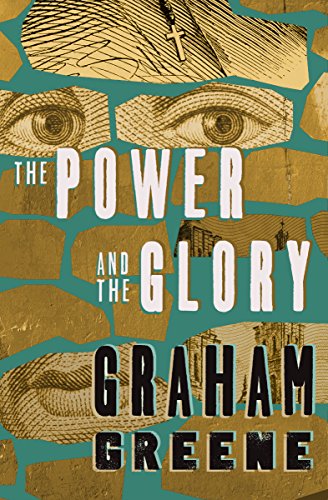
The Power and the Glory, by Graham Greene, isn’t my typical reading fare. Written in 1940, it tells the story of a so-called whiskey priest, one who has fallen from the Church, in Mexico during a time when the Mexican government was persecuting the Catholic Church. The story follows this priest as he tries to evade the authorities and encounters people from various walks of life in rural Mexico. These people have their own stories that intersect that of the priest to varying degrees. Most don’t end happily.
Throughout his travels, the priest struggles with his place in Mexican society. He is one of the few priests left, even if he is broken goods, so he is one of the few that can administer the faith. However, any time he does, he takes a chance that the authorities find him and execute him. Should he stay or should he go? This internal struggle is set against the backdrop of him trying to hide from those hunting him.
Greene has a powerful way with words, and the nature of his story allows him to philosophize about all nature of things:
- “He was a mystic too, and what he had experienced was vacancy — a complete certainty in the existence of a dying, cooling world, of human beings who had evolved from animals for no purpose at all.”
- “Instead of food they talk to you about heaven. Oh, everything will be fine after you are dead, they say. I tell you — everything will be fine when they are dead, and you must help.”
- “How often the priest had heard the same confession — Man was so limited he hadn’t even the ingenuity to invent a new vice.”
- “If God had been like a toad, you could have rid the globe of toads, but when God was like yourself, it was no good being content with stone figures — you had to kill yourself among the graves.”
- “He had always been worried by the fate of pious women. As much as politicians, they fed on illusion.”
- “Nobody really knew how long a second of pain could be. It might last a whole purgatory — or for ever.”
- “Sweat cleaned you as effectively as water. But this was the race which had invented the proverb that cleanliness was next to godliness — cleanliness, not purity.”
The priest, in the end, isn’t the most sympathetic character. He is a bit of a coward, and he hates the people that demand he serve as a priest for them. But, despite his fear and his cowardliness, he is a good person at heart, even when his actions don’t always belie that fact. As Greene weaves the story of this fallen priest, you never know what his ultimate fate will be, either physically or spiritually, and that is what sucks you in.